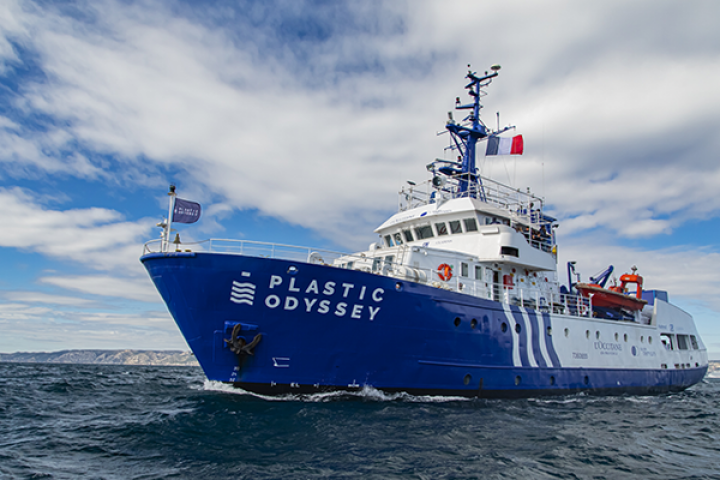Plastic Odyssey, a laboratory seeking solutions to plastic pollution

The aim of the expedition is to develop a global network of local initiatives to recycle plastic waste and thus combat plastic pollution on land and in the oceans.
Around the world in 3 years
80% of the plastic waste that pollutes the oceans comes from coastal areas, which is why the crew has planned to stop over in 30 cities around the world which are lagging behind in terms of plastic waste treatment, with a very specific objective: "To find solutions to combat plastic pollution and to test new models, on a small scale, in order to replicate them in other territories". As Simon Bernard, a merchant navy officer and president and co-founder of the company, points out: "This is not a ship designed to clean up the ocean, but rather a ship that demonstrates solutions."
After an initial stopover in Beirut (Lebanon) and a voyage in the Mediterranean lasting several months, the laboratory ship will head for the west coast of Africa and then Latin America. The year 2024 will be dedicated to the Pacific and then to Asia.
Making plastic waste valuable
Aboard the 40-metre vessel is a mini recycling factory equipped with a dozen machines including a crusher, a centrifuge, an extruder, a press, and more. These machines are capable of converting the plastic waste recovered on land into new objects or construction materials. In short, they can give them a second life. These lightweight and low-cost machines can be easily manufactured and duplicated, without the need for licensing a patent.
An awareness-raising and educational mission
At each port of call, the ship will stop for 3 weeks, during which time the crew will welcome aboard plastic recycling entrepreneurs who will be able to experience and be trained to use the solutions and low-tech machines made available to them. The Plastics Odyssey team intends to develop a global network of local initiatives whose aim is to recycle plastic waste and combat its pollution in the seas and oceans. The idea is to develop viable economic models from their machines, whose plans will be made available free of charge. The crew will also carry out awareness-raising and educational activities "with local populations, to trigger changes in individual and collective behaviour". To this end, a mobile experimentation area will be made available to the inhabitants at each stopover.
Fuelled by plastic waste
And finally, to close the loop, Plastics Odyssey is fitted with a pyrolysis system which is used to convert non-recyclable plastic waste into fuel. 500 kg of waste collected daily provides 500 litres of fuel: enough to supply the entire recycling laboratory with energy, initially, and why not, to power the ship itself with the fuel produced.
More information:
https://plasticodyssey.org/en/





